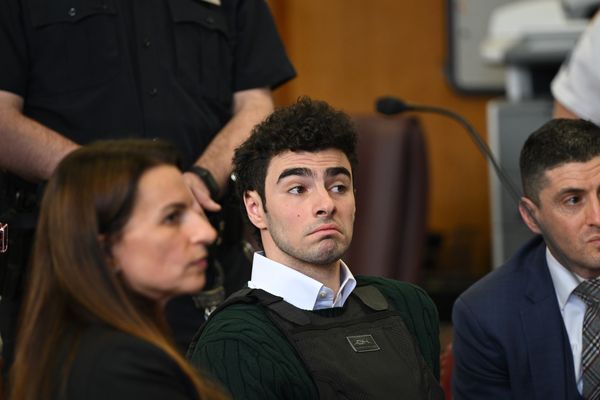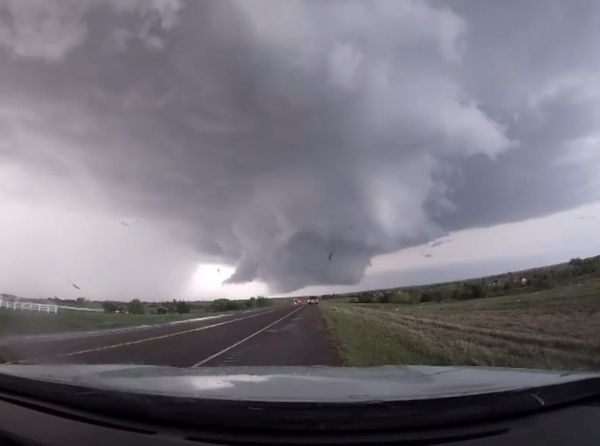
Bernard Collaery’s case has taken many twists and turns in the almost four years since he was charged.
The latest chapter in the protracted, convoluted prosecution has seen the government launch proceedings in the high court.
The story remains critically important to understand, particularly at a time when so many Australian whistleblowers are under threat, and secrecy is becoming increasingly pervasive across all aspects of government.
At the heart of the current Collaery proceedings is a tension between transparency and open justice, on the one hand, and national security and secrecy on the other.
With that in mind, let’s break down where the case is up to.
Remind me, what is the Collaery case all about?
In a nutshell, Collaery, a barrister, and his client Witness K, a former intelligence officer, were charged over their role in exposing a 2004 espionage mission against Australia’s ally Timor-Leste.
Australia bugged the offices of the young nation to give itself an advantage during commercial negotiations to carve up the resource-rich Timor Sea, which a range of major oil and gas corporates, led by Woodside, wanted to exploit.
Witness K, a long-serving member of the Australian Secret Intelligence Service, had become disillusioned and questioned the mission, which not only targeted an ally for commercial gain, but diverted crucial intelligence resources away from the region at a time of heightened terror threat.
Both Witness K and Collaery helped Timor-Leste build a case against Australia in the international courts, arguing the treaty they struck over the Timor Sea was void, because Australia had spied and not negotiated in good faith.
Collaery also spoke publicly about the case.
The government held off approving a prosecution against them until 2018, just after Timor-Leste and Australia had signed a new treaty.
They were then both charged with disclosing protected intelligence information, an allegation Collaery is fighting at trial in the ACT supreme court.
Four years is a long time to wait for trial. What on earth is going on?
The case against Collaery has dragged on interminably.
Four long years have passed since charges were laid, and we still have no trial in sight.
The government believes significant parts of the trial must be held behind closed doors to protect Australia’s national security.
That creates an unavoidable tension with the need for open justice, a founding principle of Australia’s courts system.
It’s this tension that accounts for much of the delay to this point.
The federal attorney general has sought to invoke the National Security Information Act (NSI Act) to force the courts to keep parts of the case secret.
Initially at least, the courts agreed and the ACT supreme court ruled in the attorney general’s favour and ordered significant parts of the trial be kept from the public.
But Collaery won a major victory for open justice in the ACT court of appeal last year, overturning the earlier decision.
The court of appeal ruled that the secrecy posed a “very real risk of damage to public confidence” and cited the importance of open justice in preventing “political prosecutions”.
But it also left the door open for the government to go back to the ACT supreme court and show it new evidence about the potential risks of not suppressing parts of the trial. The parties are still arguing about how, and if, the court should accept this new evidence.
OK. But what does all of this have to do with the high court?
Well, when the ACT court of appeal delivered that win for Collaery last year, it held off on publishing its full judgment.
The government believed that publishing the judgment in full would pose a risk to national security. Yes, that old chestnut.
The attorney general asked chief justice Helen Murrell to suppress parts of the reasons. She kindly declined.
Remarkably, the government then asked the high court for special leave to appeal against that decision.
Take a moment to consider that. The Australian government is asking the country’s highest court to suppress parts of a ruling that ordered Collaery’s trial should not be held in secret.
The government has told the high court there is a risk to national security from the unredacted judgment. Strangely, it has so far not given the high court a copy of the unredacted judgment so it can see it for itself.
The government also argues that the judgment should not be published before the ACT supreme court has resolved the issue we mentioned earlier, namely whether it should hear new evidence from the government about the changes to the national security environment that make the open hearing of Collaery’s case a risk.
The Human Rights Law Centre senior lawyer Kieran Pender has described the high court bid as “perverse”.
“The attorney general’s continued pursuit of secrecy in this case is a damning indictment of the Morrison government’s priorities,” he said. “Rather than enacting long-overdue reform to whistleblowing laws, the government has gone to the high court to keep parts of a court judgment that said no to a secret trial itself secret.”
What has Collaery said in response?
We’ve only just obtained Collaery’s submissions to the high court.
In them, his lawyers describe the government’s argument that the judge erred in deciding to publish the judgment as “without foundation”.
“The Attorney-General here bases her application for special leave to appeal expressly upon the proposition that disclosure of the reasons for decision of the Court of Appeal in the Primary Judgment, as redacted by her Honour the Chief Justice, would reveal national security information that is protected by the certificate, and that such information should not be revealed in circumstances in which the remittal question is not yet resolved.
“The propositions are directly inconsistent with the approach of her honour the chief justice, the assertion of error in the exercise of discretion is without evidence, and the application for special leave is without foundation.”
Where to from here?
The high court will first need to decide whether it needs to hear the case about publishing the judgment.
If it does, we could be waiting on a high court hearing and judgment for some time.
In the meantime, the ACT supreme court is still grappling with whether it should accept new evidence from the government on new risks posed to national security by hearing all of Collaery’s case openly.
The government is saying, in effect, that the circumstances affecting Australia’s national security have shifted considerably since the case was first brought.
That means the court needs to consider new potential implications of holding Collaery’s case in public, the government says.
It is also arguing it should be able to present this new evidence in a super secret form, denying Collaery the chance to see it. If this happens, only the judge would be able to view this new evidence the government says justifies keeping the trial partly closed to the public.
Collaery has warned that allowing the government to do this risks creating a never-ending cycle, where the delays in the case are used as an excuse to present new evidence of the need for secrecy, which delay the case again.
The supreme court judge David Mossop expressed a similar concern last year.
“Is there any prospect of this matter ever being completed? Or will we be stuck in a perpetual vortex of updating?” he said.







